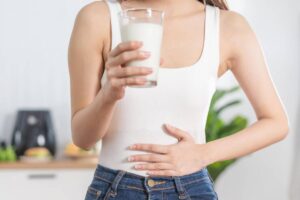Health Blog

Hydration, Electrolytes, and Gut Health: The Fitness Connection
More Than Just Water Bottles and Yoghurts
Ever slogged through a sweaty workout and felt like, “My problem is I don’t have enough water”? You’re not off — but hydration is just part of the story. When you’re active, many factors come into play. From breaking personal records to jogging in the park, your gut health, electrolytes, and hydration all work together. This teamwork helps you perform at your best and recover quickly.
Hydration and electrolytes are important topics in fitness. And probiotics? They are generally associated with digestion or immune health. Well, what if I told you that your gut microbes might be influencing how you recover from a workout? They may also play a part in how you process fluids and nutrients.
In this article, we’ll explore how hydration, electrolytes, and gut health connect. We’ll explain why they’re crucial for your fitness journey. Plus, you’ll receive no-brainer tips to maximise them — no science degree required! Are you ready to experience and operate better through your gut? Let’s dive in.
Hydration and Electrolytes: The Basics with a Twist
Why Hydration Isn’t Just About Water
Hydration isn’t simply about how much water you drink—it’s about how well your body retains and uses it. When you exercise, you sweat. This makes you lose water and electrolytes, like sodium and potassium.
If you don’t replace both, dehydration kicks in, potentially causing:
- Muscle cramps
- Fatigue
- Dizziness
- Impaired performance
Think of water as the fuel and electrolytes as the spark plugs—they both need to work together.
What Are Electrolytes and Why Do They Matter?
Electrolytes are minerals. They help balance fluid levels in your body. They also support muscle contractions and regulate nerve function.
The major ones include:
- Sodium – Helps maintain fluid balance
- Potassium – Crucial for muscle function
- Magnesium – Aids energy production and muscle recovery
- Calcium – Important for muscle contractions
If you don’t replenish electrolytes after intense exercise, your hydration plan won’t work.
Real-World Example:
Emma, a triathlete, upped her water intake but still felt wiped out after training. She traded one post-run water for an electrolyte drink. She also added magnesium-rich foods, like spinach, to her meals. Within weeks, her energy rebounded, and muscle cramps disappeared. Simple change, massive impact.
Gut Health: The Unsung Hero in Sports Performance
What Is Gut Health, Really?
When we mention “gut health,” we mean your gut microbiome. This refers to the trillions of bacteria in your digestive tract.
A healthy gut has a rich and balanced mix of good bacteria, which help:
- Break down food
- Absorb nutrients
- Regulate inflammation
- Produce key vitamins
- Strengthen your immune system
How Does This Affect Fitness?
A balanced gut helps with nutrient absorption and boosts immune strength. Both are key for steady training.
There’s growing evidence that your gut health can:
- Improve endurance
- Reduce inflammation post-workout
- Speed up muscle recovery
- Enhance mental focus
Picture this: you train hard and eat well, but still feel sluggish. Why? Your gut might not be processing nutrients the way it should. That’s like filling a Ferrari with premium fuel—but with a blocked filter.
The Link Between Gut Health, Hydration, and Electrolytes

The Gut as a Gateway to Better Hydration
Here’s where things get interesting. Your gut health affects how well you absorb fluids and electrolytes.
An inflamed or imbalanced gut can impair absorption, leading to:
- Bloating
- Dehydration
- Nutrient deficiencies
A healthy gut lining works like a sponge. It absorbs electrolytes, water, and nutrients when your body needs them.
Probiotics: Tiny Helpers for a Huge Job
Probiotics are beneficial bacteria that can help restore balance in the gut microbiome.
In the context of fitness, they:
- Support the intestinal barrier (keeping hydration efficient)
- Improve digestion and nutrient absorption
- Reduce exercise-induced inflammation
- Enhance the immune response in athletes
Some studies suggest that certain probiotic strains, like Lactobacillus rhamnosus and Bifidobacterium longum, may lower the risk of upper respiratory infections. This effect is especially noted during intense training cycles.
Probiotics and Fitness: Where Performance Meets the Microbiome
Probiotic Strains with Athletic Benefits
Not all probiotics are created equal.
Here are some well-studied strains for active individuals:
- Lactobacillus casei Shirota – Reduces exercise-induced oxidative stress
- Bifidobacterium bifidum – Enhances immune defence during endurance training
- Lactobacillus plantarum – Aids protein digestion and muscle recovery
Tip: When buying a probiotic supplement, check the strain (not just the species) and CFU count (colony-forming units). Look for at least 10 billion CFU for general gut support.
Foods That Combine Gut and Hydration Power

You don’t always need to rely on supplements.
Nature’s got your back with hydrating, gut-friendly foods:
- Coconut water – Natural electrolytes and hydrating sugars
- Watermelon – 92% water and rich in lycopene
- Kefir or yoghurt – Rich in probiotics and protein
- Cucumber and celery – Hydrating and packed with gut-loving fibre
- Sauerkraut or kimchi – Fermented, probiotic-rich foods
Pair these with your post-workout meals, and your gut and hydration will thank you.
Practical Tips to Optimise Gut Health, Hydration, and Electrolytes
1. Hydration Timing Matters
- Before exercise: Drink 500ml of water 1–2 hours prior
- During exercise: Sip 100–150ml every 15–20 minutes (more in heat)
- After exercise: Rehydrate with fluids that include electrolytes, not just plain water
Pro tip: Add a pinch of sea salt and a splash of citrus juice to your water for a natural electrolyte boost.
2. Eat for Your Gut

Focus on a plant-rich, diverse diet that feeds your gut microbes.
Include:
- Prebiotic fibres – e.g., garlic, onions, oats, bananas
- Probiotic foods – e.g., yoghurt, kefir, miso, sauerkraut
- Polyphenols – found in berries, green tea, and dark chocolate
They nourish your microbiome and boost digestion. This helps your body hydrate and recover more quickly.
3. Limit the Gut Saboteurs
Beware of things that disrupt your gut, especially around training:
- Too much alcohol
- Overuse of NSAIDs (like ibuprofen)
- Artificial sweeteners (which may alter gut bacteria)
- Highly processed foods
A balanced gut = better performance.
4. Experiment and Track
Your body is unique. Try different probiotic foods or supplements and observe:
- Energy levels
- Bloating or digestive changes
- Recovery time
Apps like MyFitnessPal or Cara Care can help you log these patterns.
Conclusion: The Power Trio for Peak Performance
To crush your fitness goals, look beyond protein shakes and heavier weights. Your gut might hold the answers. Hydration and electrolytes can be the keys to boosting your performance from good to great.
Maintain good gut health with the proper probiotics and diet. Drink water wisely. You can balance your electrolytes. You’re not merely fueling your body; you’re helping it flourish.
Whether you run on weekends or train for marathons, these systems boost your energy, focus, and resilience.
Your next steps?
- Try adding probiotic-rich foods to your weekly meals
- Pay attention to how you hydrate before and after workouts
- Choose natural, whole-food sources for electrolytes
Feel the difference, and let your gut guide you to stronger, smarter workouts.
What’s your go-to hydration strategy or favourite gut-friendly food? Drop a comment below—we’d love to hear your experience. If you like this, share it with your fitness friends. You can also subscribe to more science-backed wellness tips.









